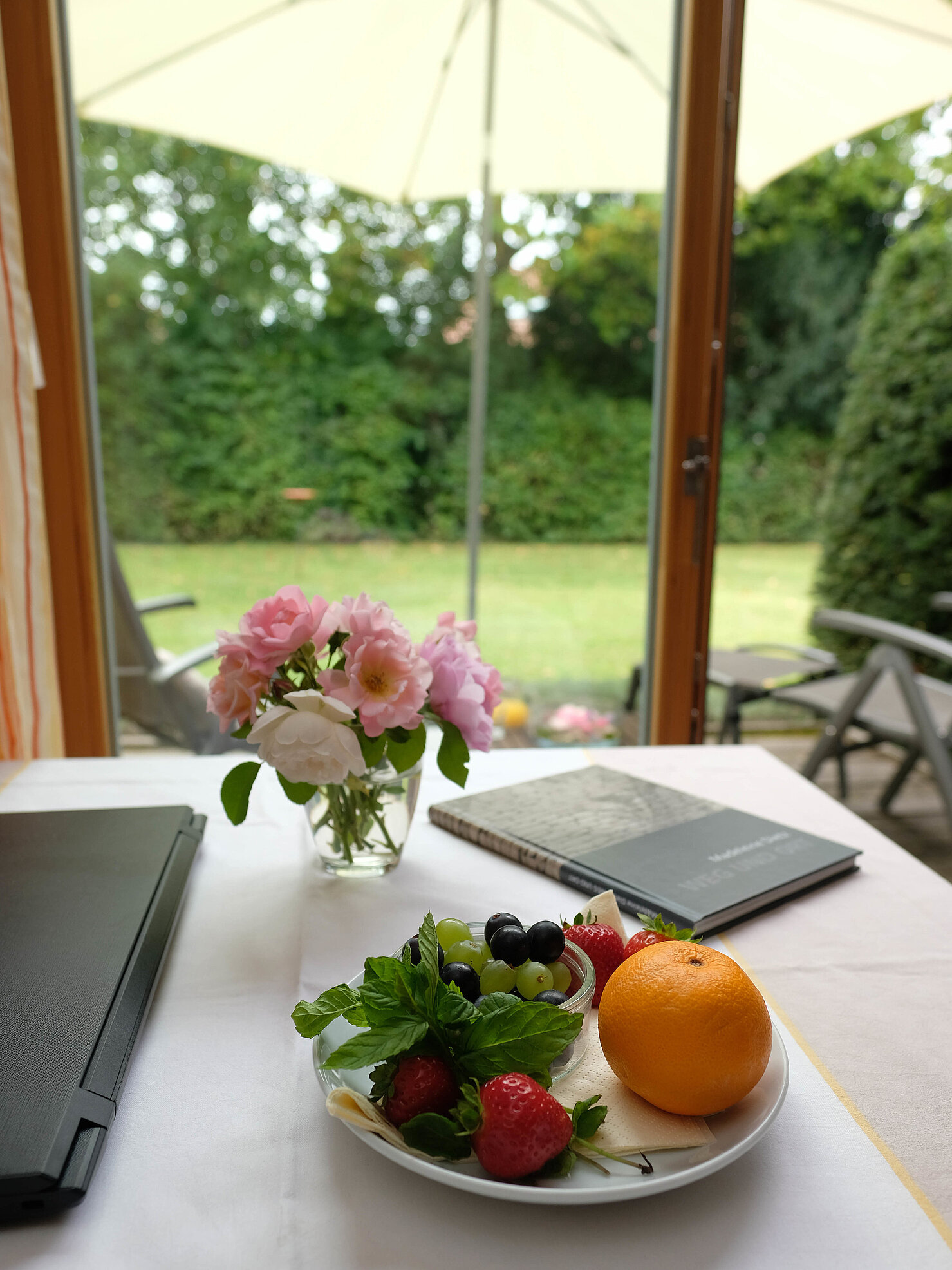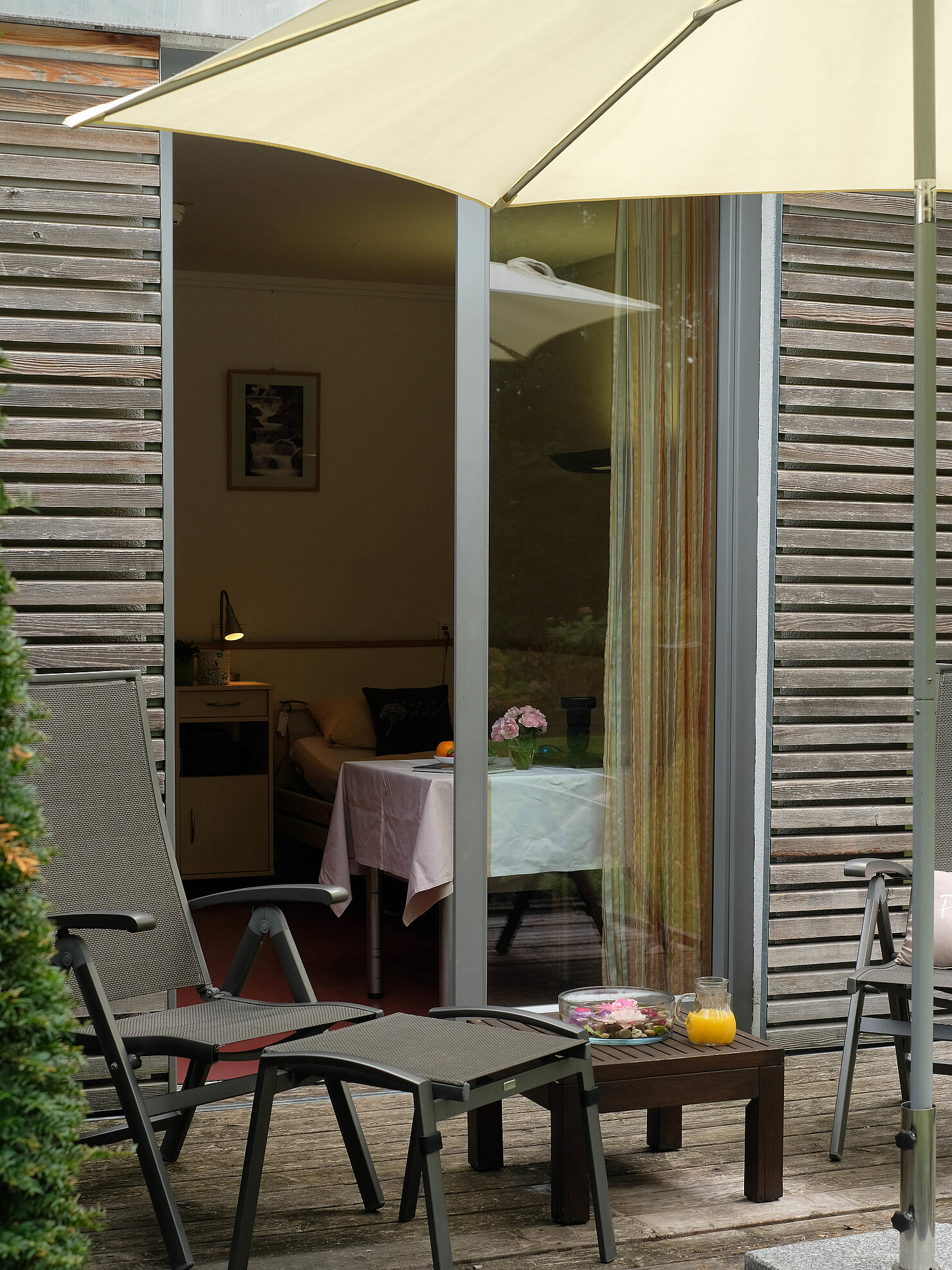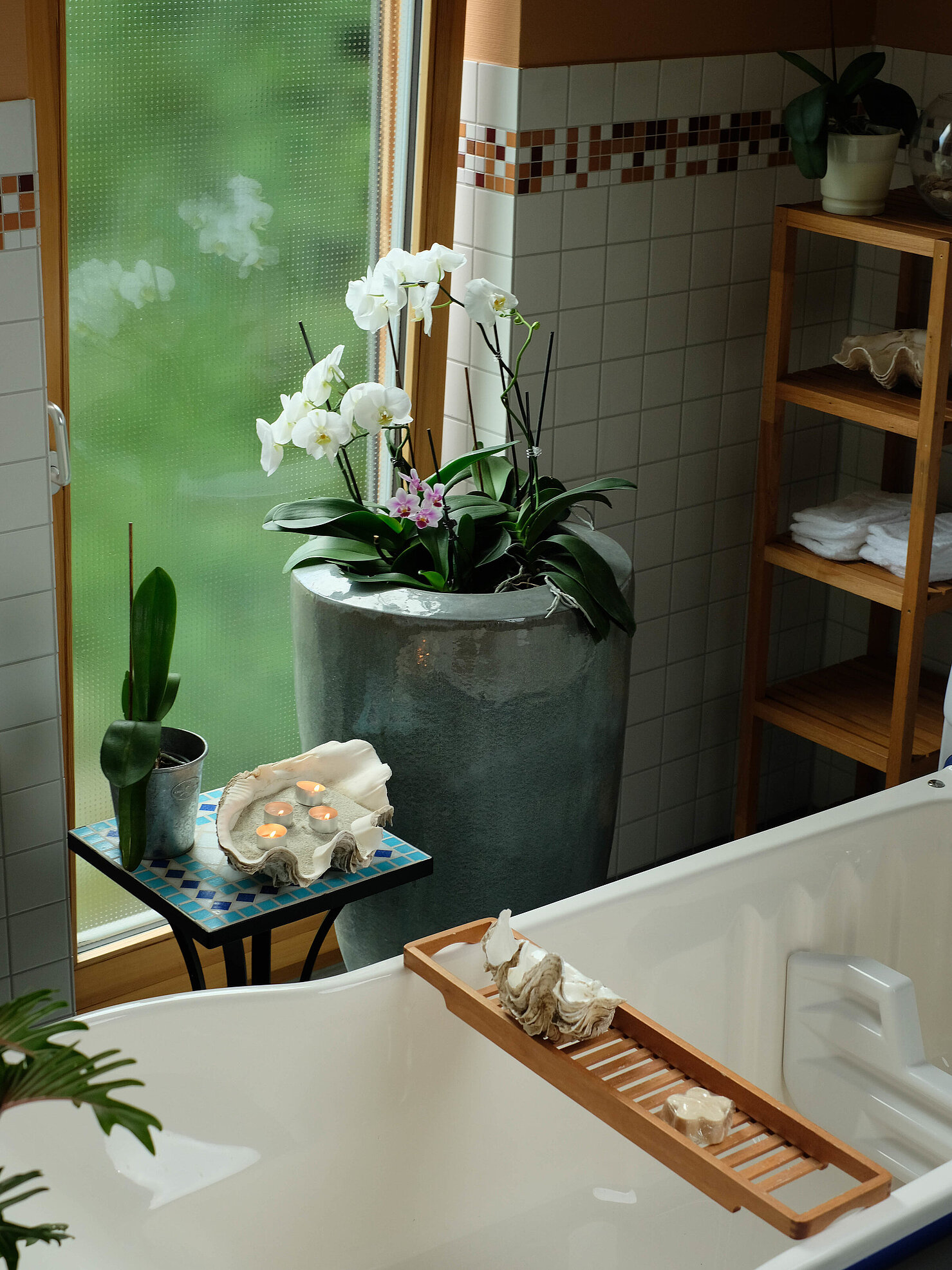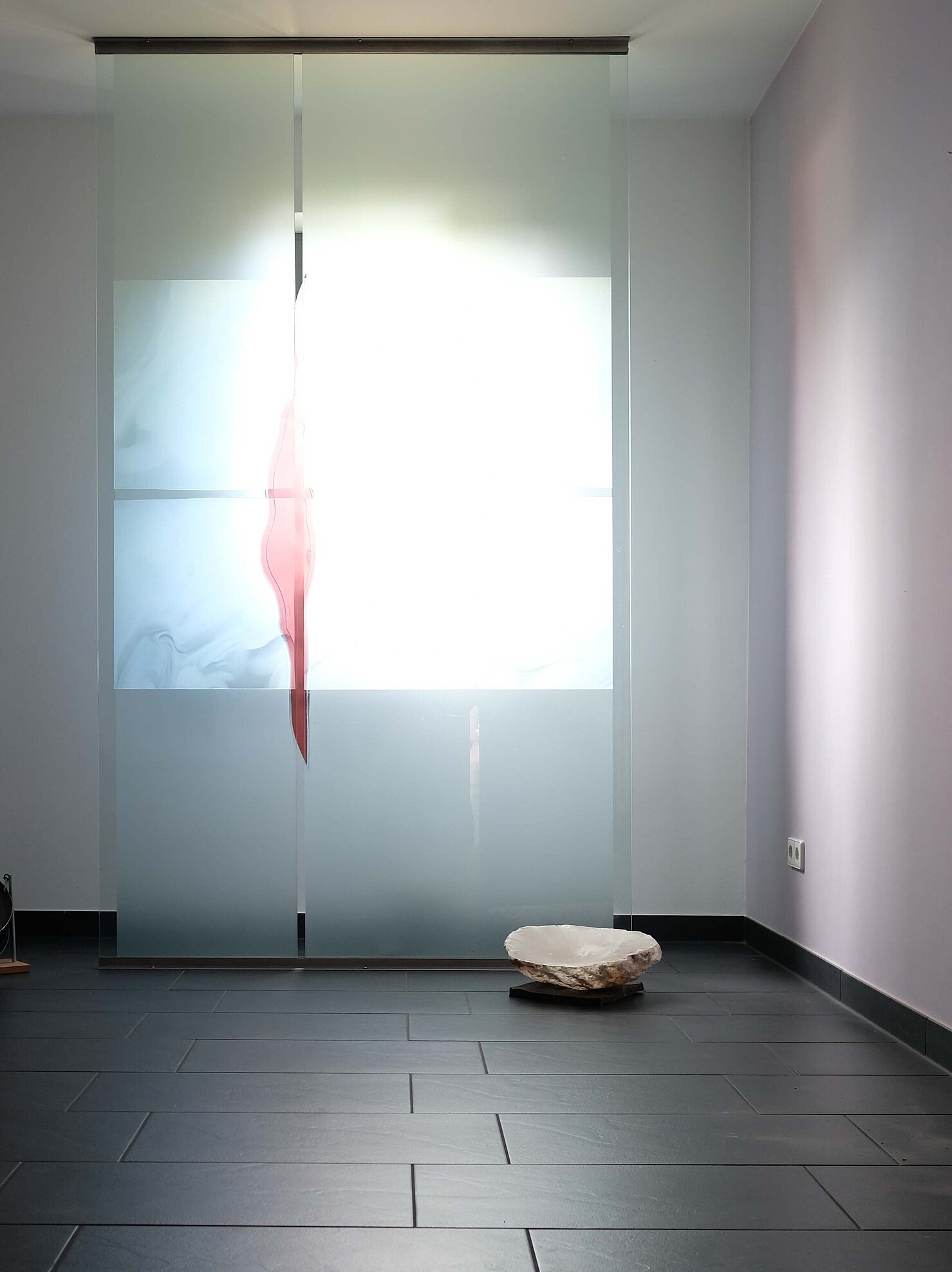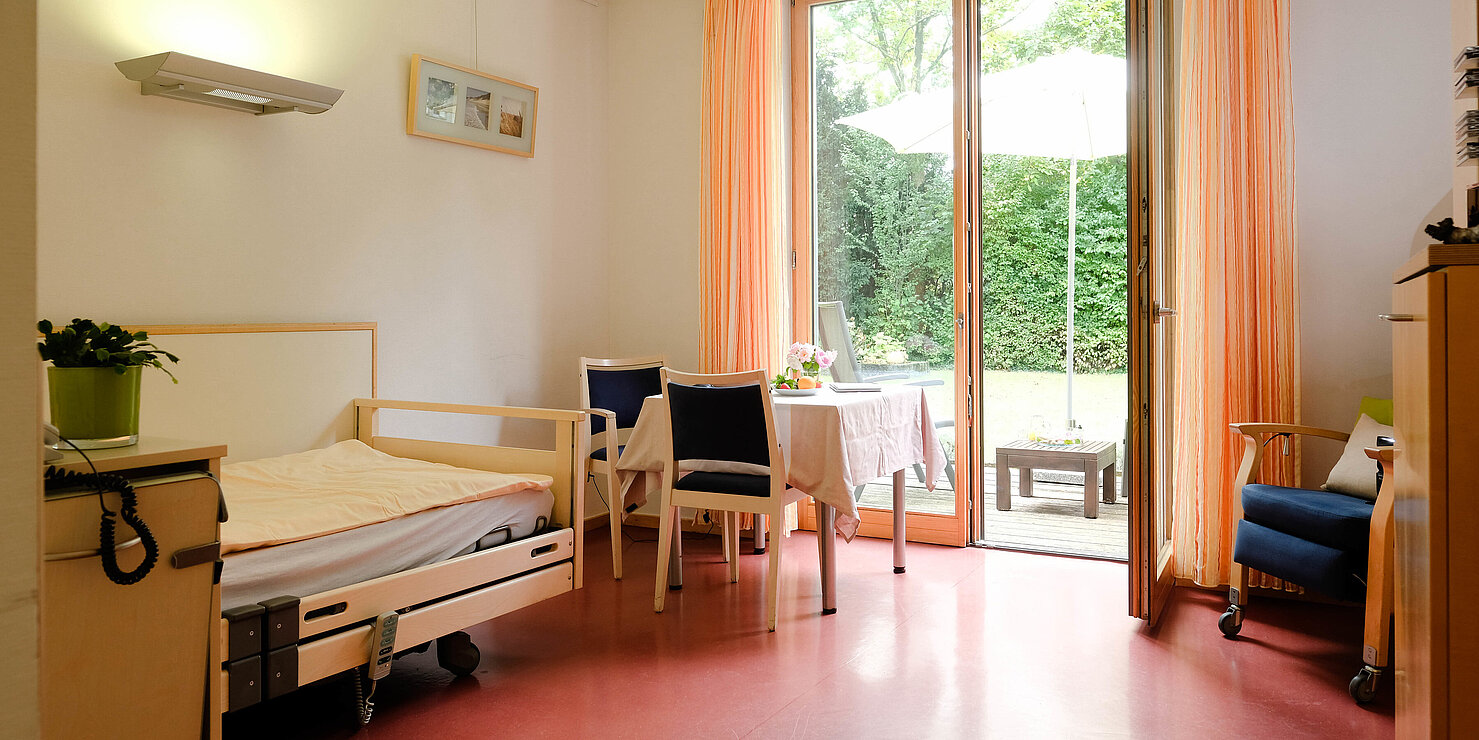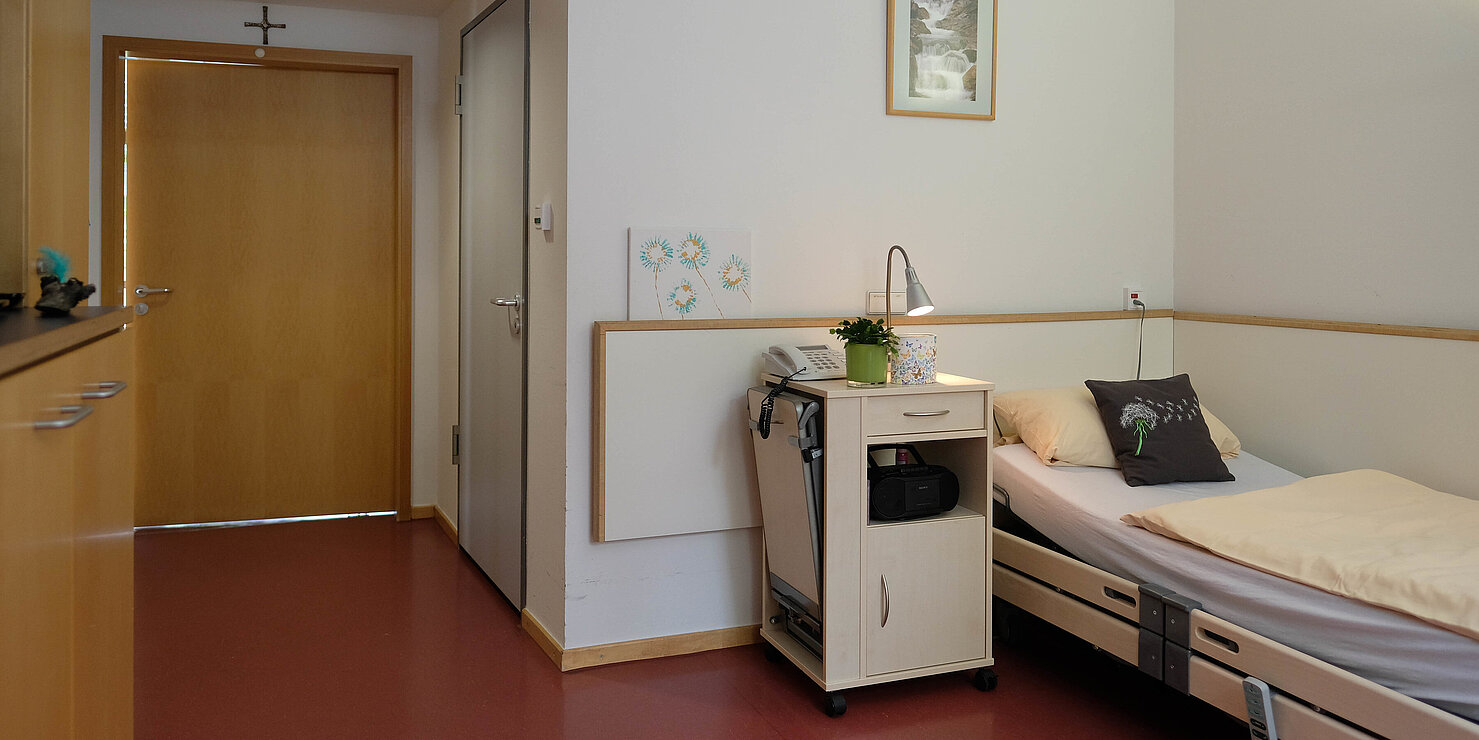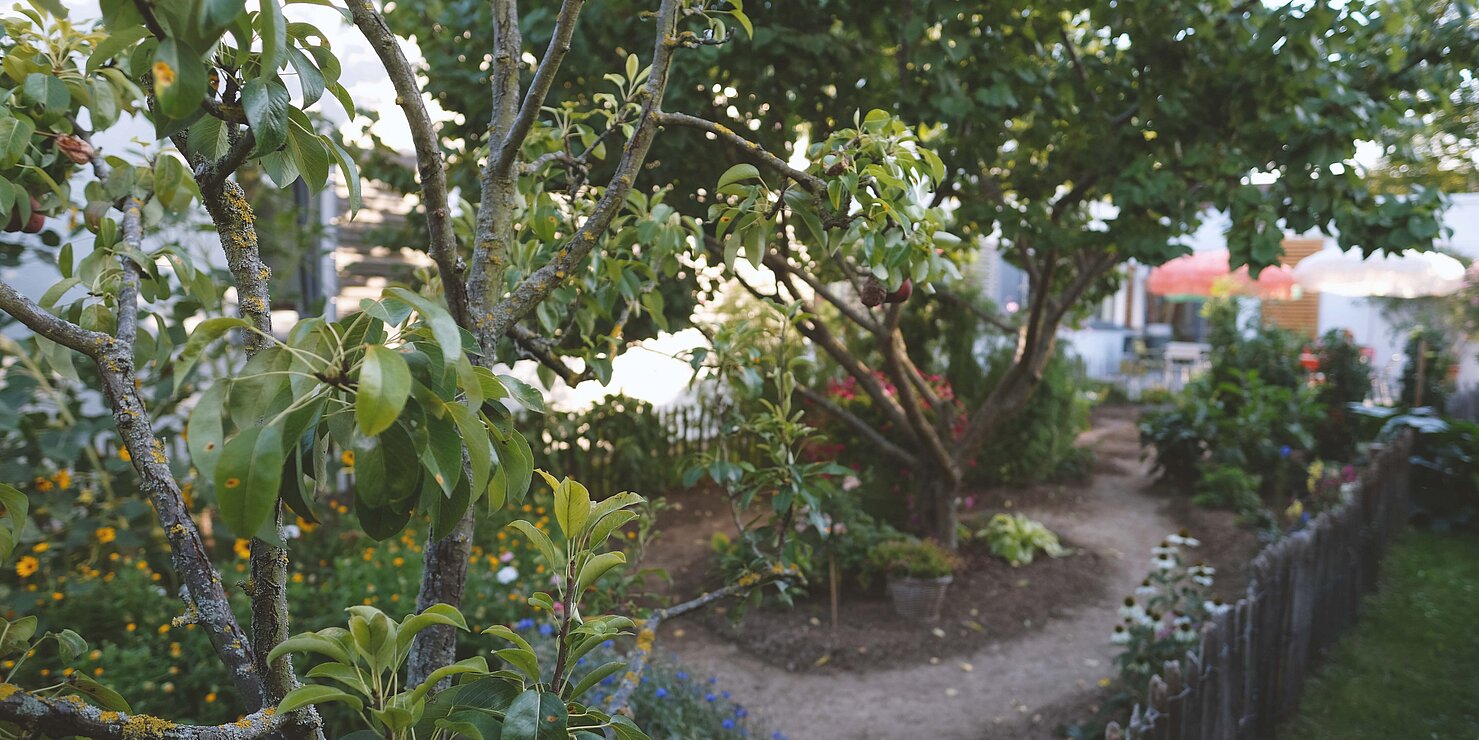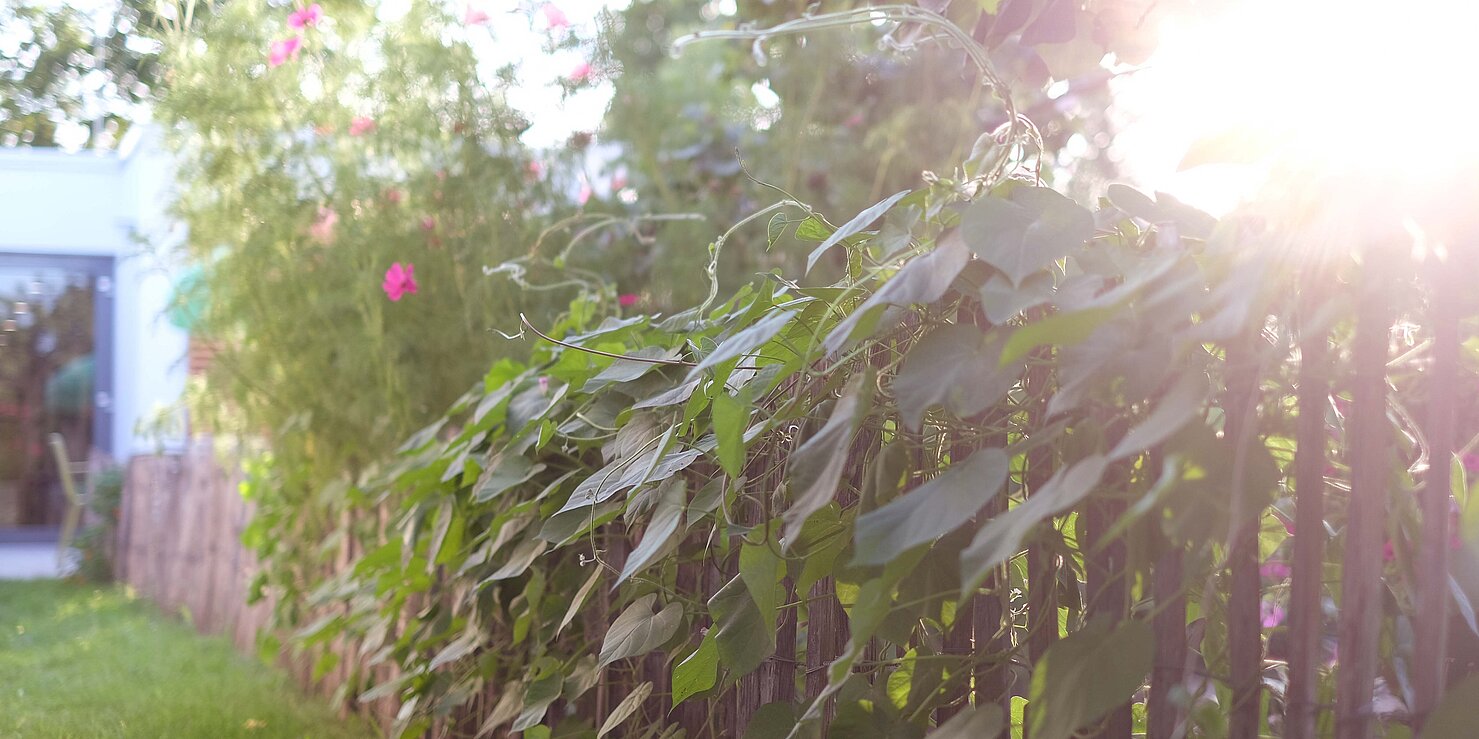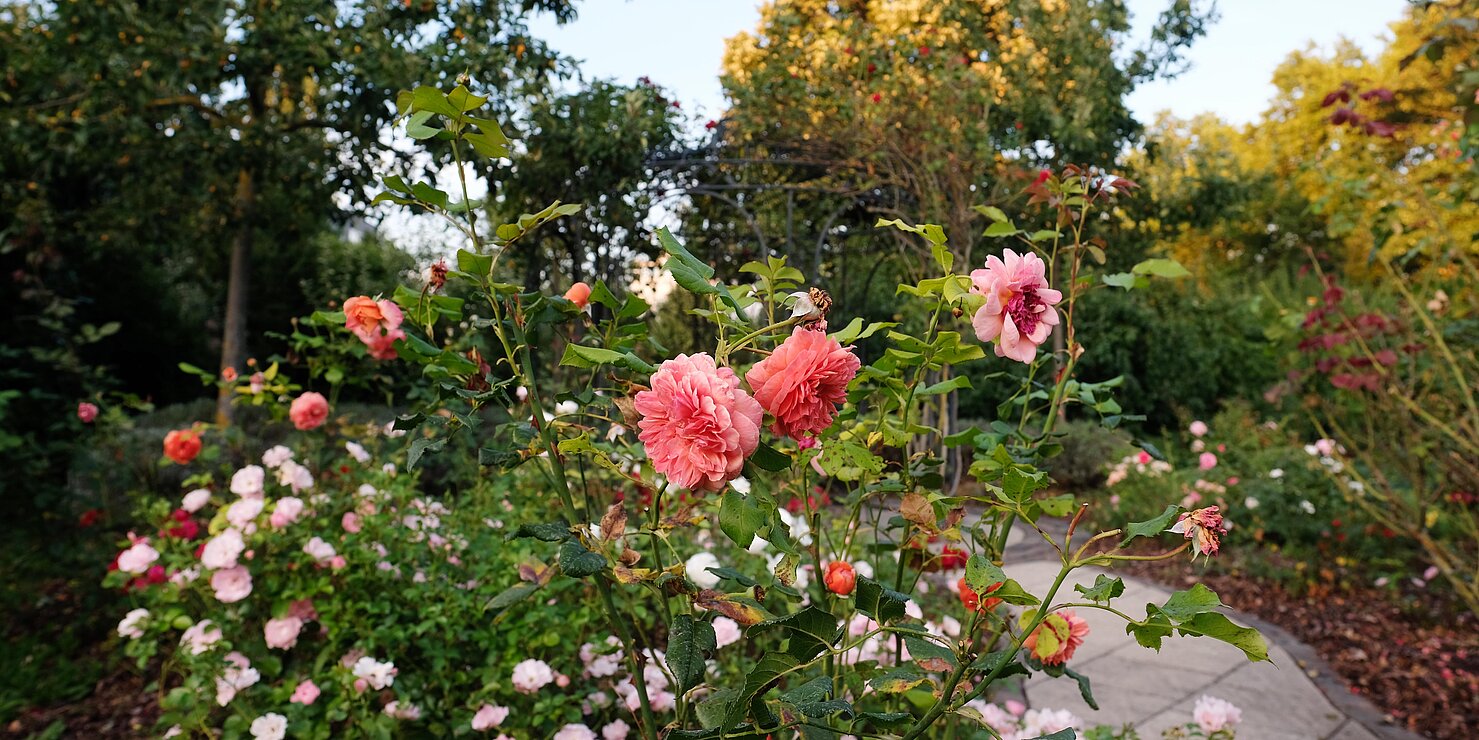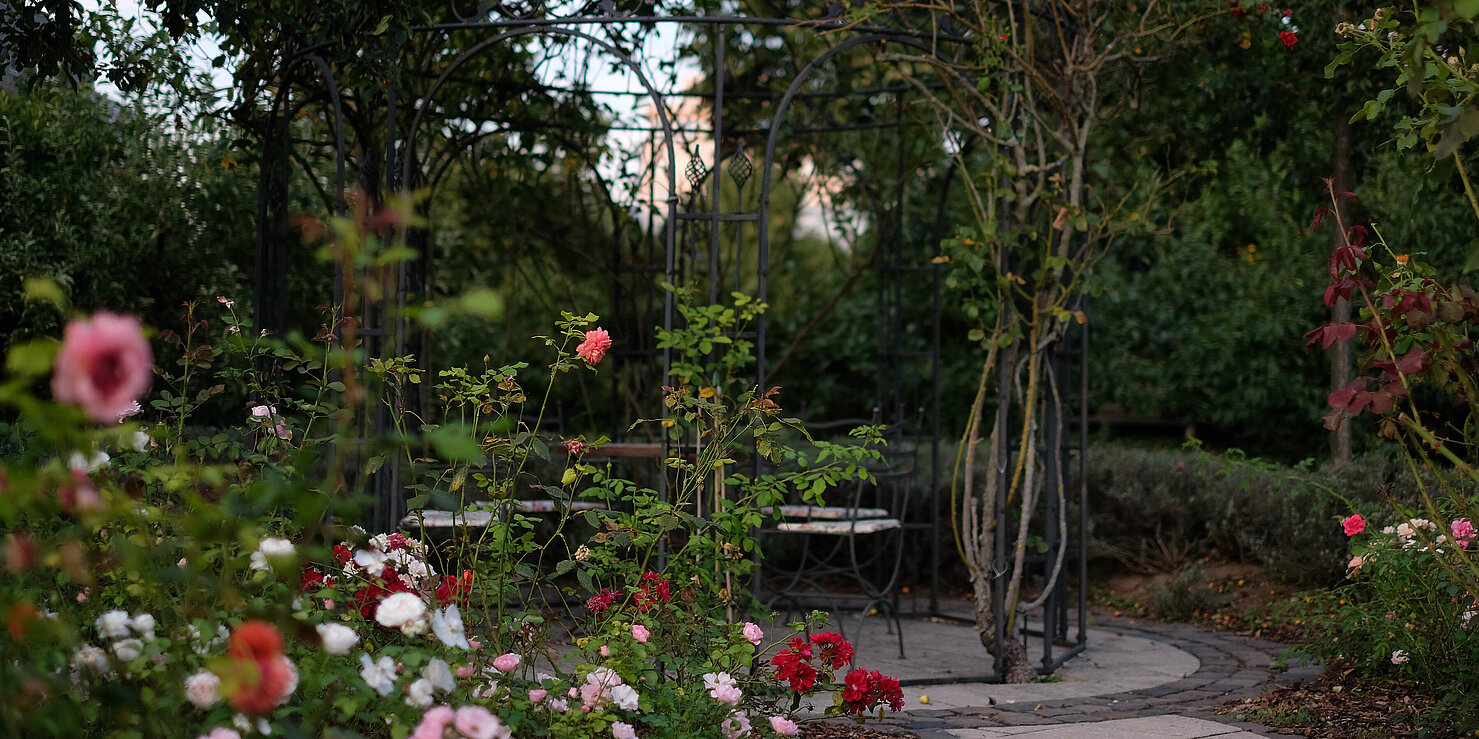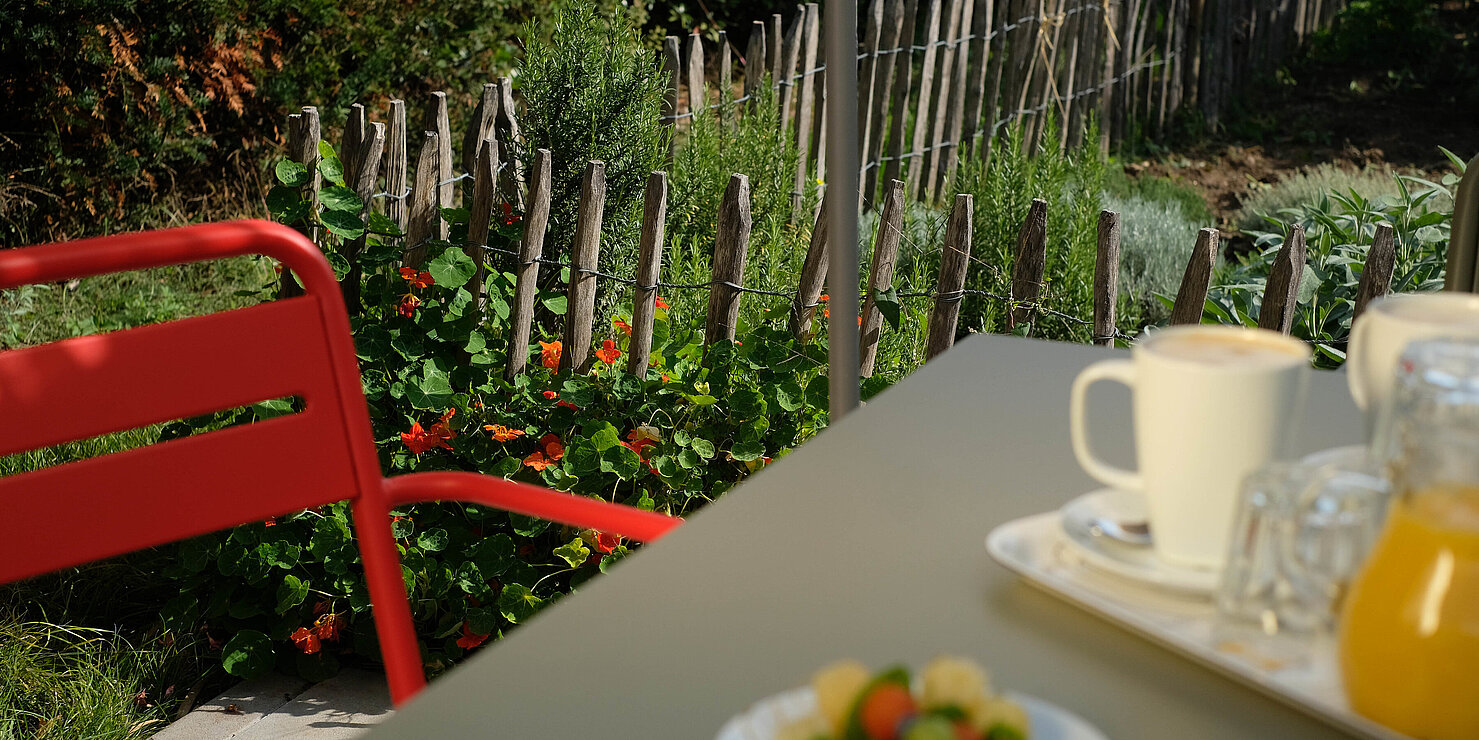ARRIVE
AND BE
A HOUSE WITH SPACE FOR BEING HUMAN
With its eight rooms, a shared kitchen and an open, light-flooded lounge, the inpatient hospice is what we wanted for our patients: a place to be together. Decorated in warm tones, carefully furnished and equipped with loving details, the inpatient hospice also offers the latest technical standards and is completely barrier-free. The house has a separate care bathroom, a guest room for overnight stays and a room for prayer and contemplation.
In our spacious outdoor area, our patients will find places to linger, experience and relax: an atrium with an outdoor terrace and deckchairs, the rose pavilion, a vegetable garden, meadows and gravel paths, lined with lavender and framed by stately deciduous trees.
Our hospice is certified and recertified by TÜV Süd and was built in 2005 on the grounds of St. Marienkrankenhaus Ludwigshafen.
“When the journey ends, the arrival begins.”
Do you have to have tried or had everything in life to call it fulfilled? At what point is a life “fulfilled”? We all know those moments when we look back, amazed or even saddened by how quickly many things pass by. But everyday life usually brings us back again quickly – and the thought fades. We are left with a period of time that gains its power and significance from its finiteness. As death approaches, a confrontation with ourselves and our lives is inevitable. If we manage to see this phase not only as a threat, but also as an opportunity for openness and awareness, then something remains of us that survives life. Our hospice is consciously intended to be a place for this.
Ideas are followed by action: THE TERM “HOSPICE”
Hospice is derived from the Latin “hospitium”, “hostel”, “hospitality”, “guest house”.The word hospice in its current use in the sense of palliative care has found its way into contemporary linguistic culture through the inpatient hospices that first opened in the UK in the late 1960s.
“And life again and again!Taste. Smell. Sense. Savor. Celebrate.”
Team. Strength
An inpatient hospice requires a wide range of knowledge among the staff, but above all social skills. Palliative care and support are always a holistic process that cannot do justice to the patients without empathy, respect and communication within the team.
After all, a hospice is an open house and our patients are a direct part of our daily working environment.
Our mood and attitude have a decisive influence on the reality of their lives. This is why internal dialog is so important and indispensable for patient-oriented team performance.


